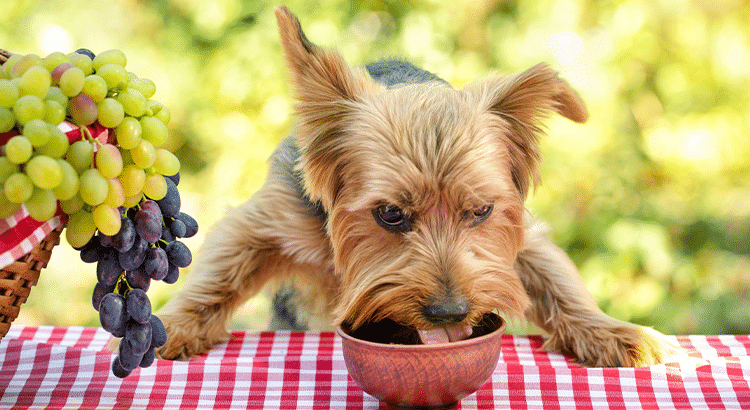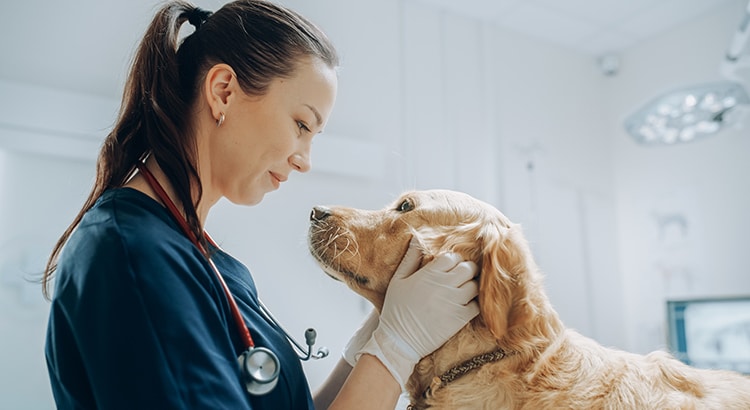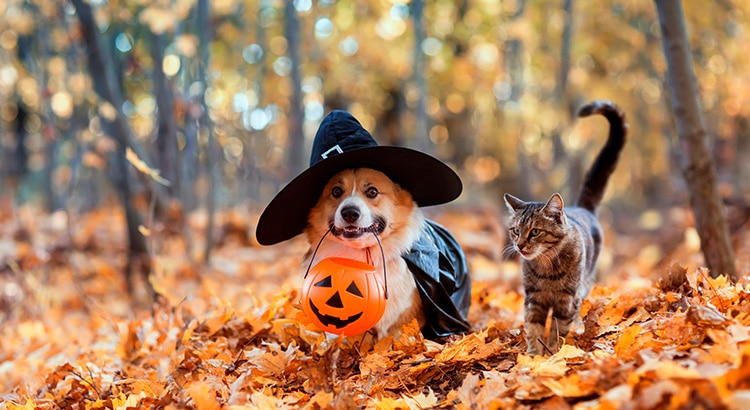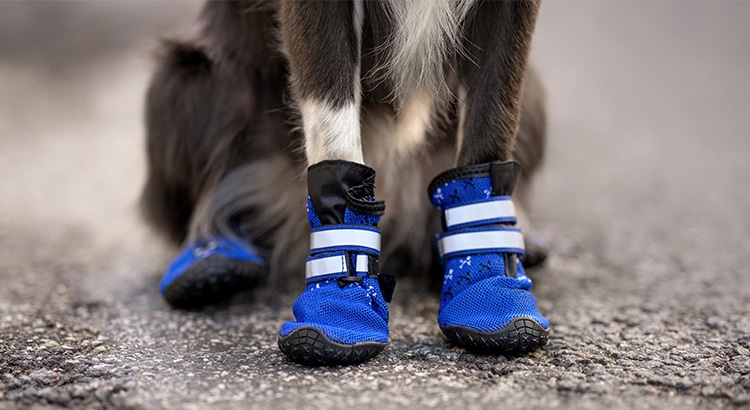Food Poison Prevention For Dogs 101
March is National Poison Prevention Awareness Month.
Veterinarians use this as an opportunity to educate pet owners on preventing accidental consumption of dangerous substances by providing safety tips and increasing awareness. We will tackle a common question among pet owners.
What foods are poisonous to my pet?
Fetch by WebMD has compiled a thorough list of foods that your pup should never eat. Here are a few of those listed:
Diet foods that are sweetened with the artificial compound xylitol can cause a pet’s blood sugar to drop and cause liver failure. This is found in sugar-free treats such as gum, toothpaste, candy and baked goods.
Symptoms include vomiting, severe fatigue and coordination problems, ultimately leading to seizures and liver failure.
Avocados contain persin in the leaves, seeds, bark and fruit.
Symptoms can include vomiting or diarrhea in dogs.
Alcohol has the same effects on a dog’s liver and brain that it does with humans.
Symptoms after ingestion include vomiting, diarrhea, coordination issues, breathing problems, coma and even death. The smaller the pup, the worse the outcome.
The intake of garlic or onion can kill a dog’s red blood cells, causing anemia. Red blood cells which are responsible for transporting oxygen in the body and this is disrupted.
Symptoms of weakness, vomiting and breathing problems can become present.
Macadamia nuts are listed as one of the top human foods to avoid giving your dog according to the AKC.
Symptoms of muscle shakes, vomiting, high temperature, depression and weakness in their back legs can present themselves.
Have you ever wondered why chocolate is a big “no-no” when it comes to sharing a treat with your pup? It contains theobromine which can cause numerous health issues.
Symptoms include tremors, heart problems, vomiting, diarrhea, excessive urination, seizures and death.
Fruits and vegetables with large seeds or pits, referred to as stone fruits, can cause a bowel obstruction. Peach and plum pits have cyanide which is poisonous to people and pets and can lead to death.
Symptoms of stone fruit ingestion can include cracked teeth, damage to the esophagus, obstruction in the stomach, gastrointestinal illness due to mold, or intoxication due to rotting fruit.
Avoid exposing your pet to salmonella, E. coli and overall food poisoning which means not offering raw eggs, meat, or fish.
Symptoms to look for include vomiting, fever and big lymph nodes.
Foods That Are Safe For Pets
Fruits and vegetables are mostly safe to offer your pet if they are free of seeds, stems, and leaves. The American Kennel Club lists the following foods in these groups as safe to share with your pup:
Fruits
Apples
Bananas
Blueberries
Cantaloupe
Cranberries
Cucumbers
Mangos
Oranges
Peaches
Pears
Pineapples
Raspberries
Strawberries
Watermelon
Vegetables
Broccoli
Brussel Sprouts
Carrots
Celery
When trying to decide if a food is safe for your pet or could lead to pet poisoning, the most responsible decision would be to just pass on sharing an edible human treat with your pup. To ensure food poison prevention in dogs, stick to food that has been developed specifically to meet their nutritional needs and dodge the possibility of poisoning your pet. Should your pet ingest something unsafe, our Pin Paws Plus membership provides access to a veterinarian professional 24/7/365 with whiskerDocs. Help is available via phone, text, or chat to receive advice promptly and avoid rushing your pet to the ER vet.
ASPCA Animal Poison Control Center:
(888) 426-4435
The Pet Poison Helpline:
(855) 764-7661





